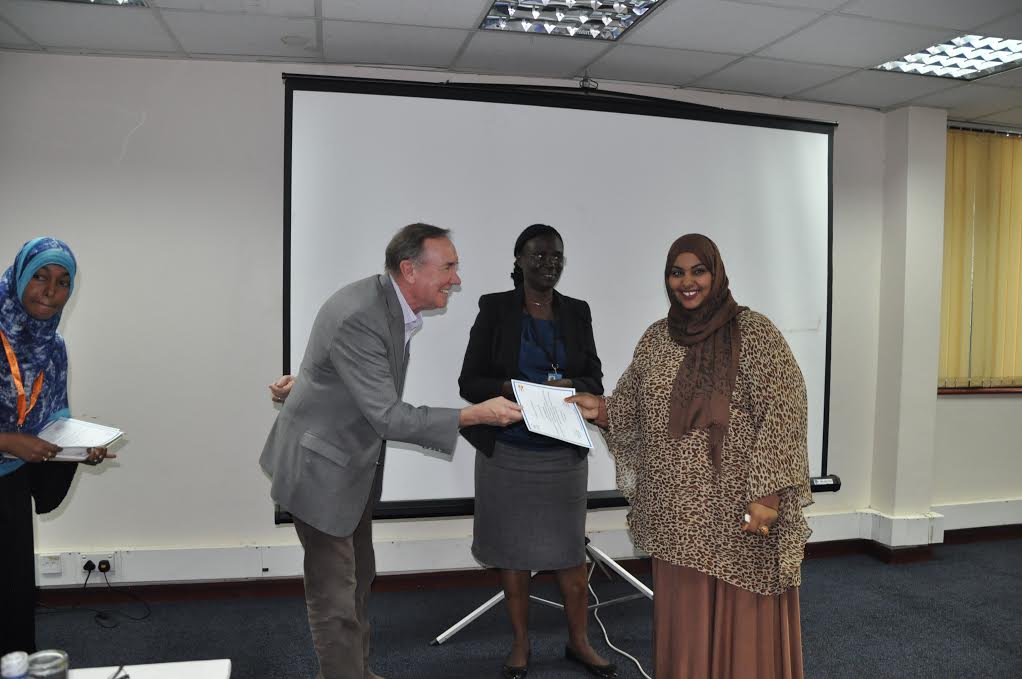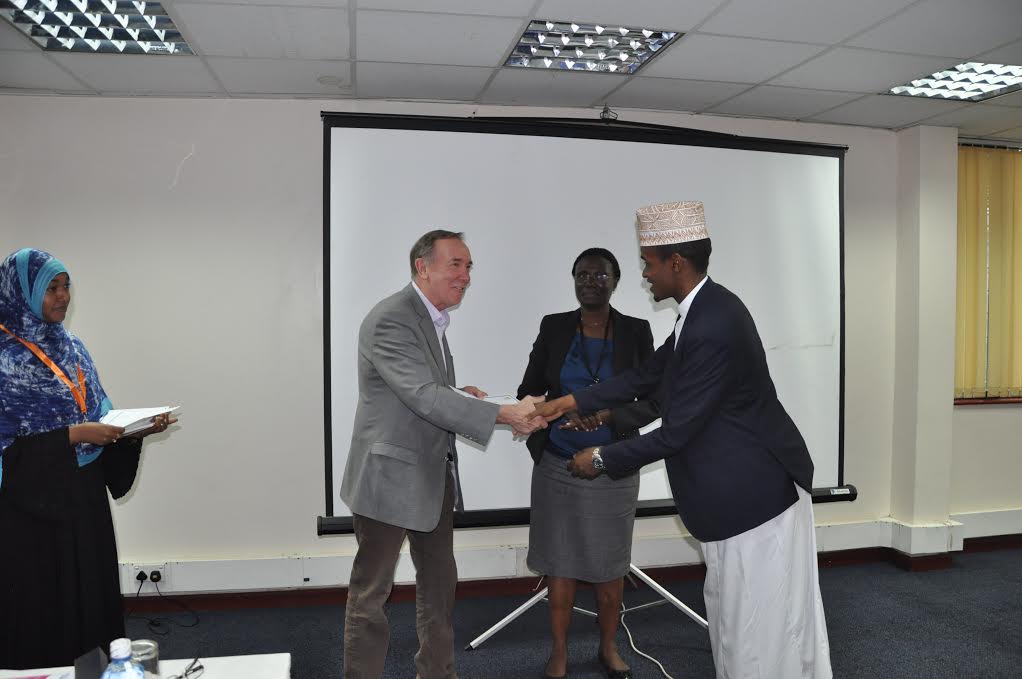UNFPA, with funding from the Office of the United States Foreign Disaster Assistance (OFDA)/USAID, is working on strengthening the technical capacity of the Gender Based Violence Working Groups (GB¬V WGs) and recently held the first ever comprehensive training on GBV coordination and programming for the chairs, co-chairs and focal points for the working groups from the three regions of Somalia; South Central, Somaliland and Puntland.
As the national chair for the GBV WG, UNFPA is co-leading the process with Save Somali Women and Children, the national co-chair of the working group.
The five-day training, which took place from 22 to 26 June, focused on pro¬moting Human Rights Based Approach to GBV programming, implementation of results based management with advocacy, networking, negotia¬tion skills, leadership skills, proposal writing, pres¬entation skills, and communication for GBV coor¬dinators, according to the national chair for the WG Isatu Sesay-Bayoh, who is also Gender Advisor and Gender based Violence Technical Specialist for UNFPA Somalia.
"Through the training, we also reviewed and agreed on realistic implementation and on a joint monitoring plan. Our main goal is improving on delivery of results," said Sesay-Bayoh, adding: "we are glad that we managed to improve coordination mechanism of GBV WGs in the field for tangible results in GBV Prevention and Response and agreed on ways for ensuring that the visibility of gender programming of UNFPA in Somalia is widely enriched and strengthened."
Among other issues, the participants were empowered to advocate within the government on the development and enactment of policies and other legislations, such as sexual offences bills, FGM policy and act, gender policy and action plan, family law policy, alternative care policy and act, national action plan for children, juvenile justice act and CEDAW ratification.

The chairs, co-chairs and focal points for the working groups also discussed ways of strengthening the justice delivery mechanism to comprehensively address sexual abuse and violence against women, to contribute to the development of clinical management of rape protocol and medical support, oversee the adherence of human rights based approach, survivor centered approach and community based approach by the service providers.
Other issues discussed included validation of harmonised GBV messages, improving supply management of reproductive health kits, development of FGM anti-medicalisation strategy and code of conducts; enhance midwifery and nurses' school curriculum and development of harmonised GBV curriculum for schools.
Dr. Mina Hassan from the Ministry of Women and Human Rights Development, representing the Federal Government of the Somali Republic, expressed gratitude to UNFPA and OFDA/USAID for bringing the participants together to strengthen the capacity on GBV coordination and programming.
"This is very important to ensuring that Somali women are protected at all times," said Dr. Hassan.
Director of OFDA Thomas Tauras congratulated the participants for completing the 5-day training. He expressed his delight in meeting with the chairs, co-chairs and focal points of GBV WGs and task forces and encouraged them to apply the skills, knowledge and tools gained and agreed during the training.

UNFPA Acting Representative Grace Kyeyune said at the closing of the training session that all the GBV actors have the responsibility to ensure that all the GBV WGs are effectively functioning and supporting implementation and reporting of activities under the GBV WG strategy.
By: Pilirani Semu-Banda
UNFPA Communication Specialist


